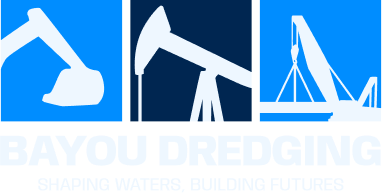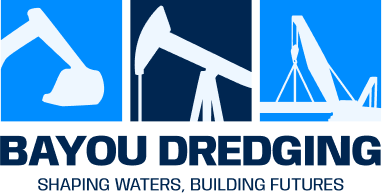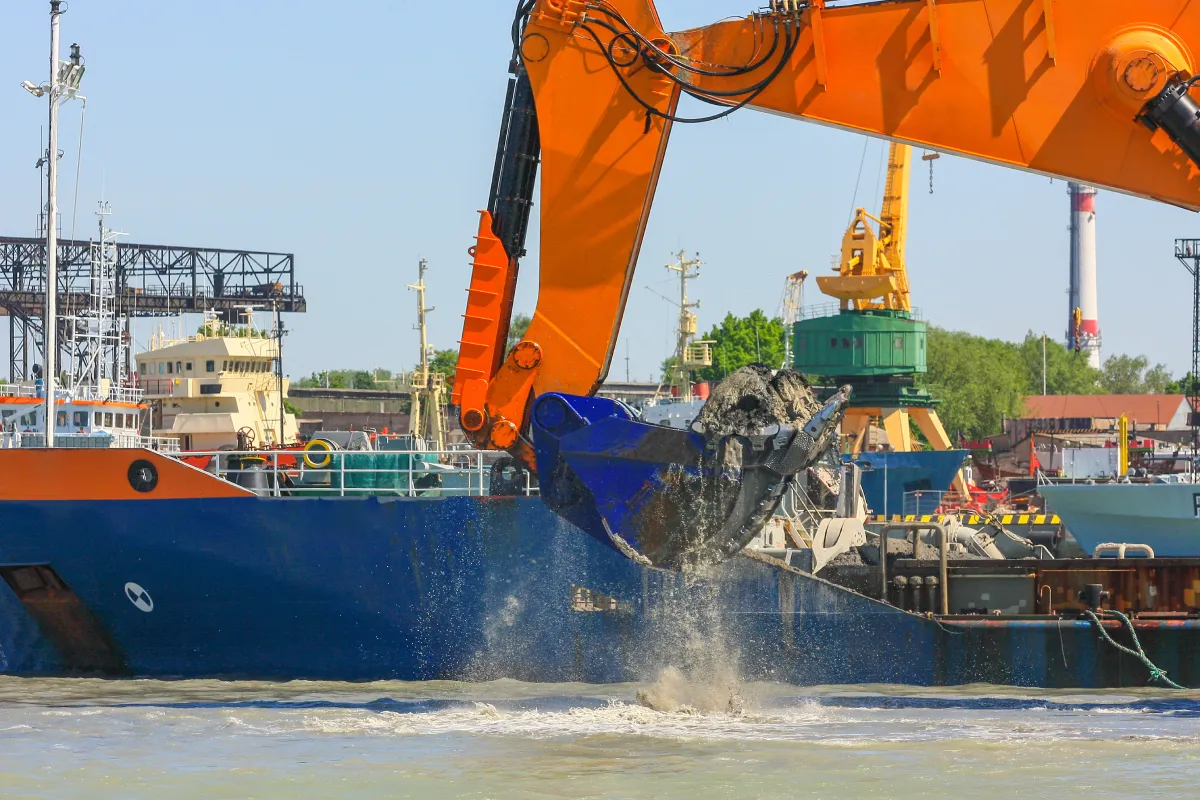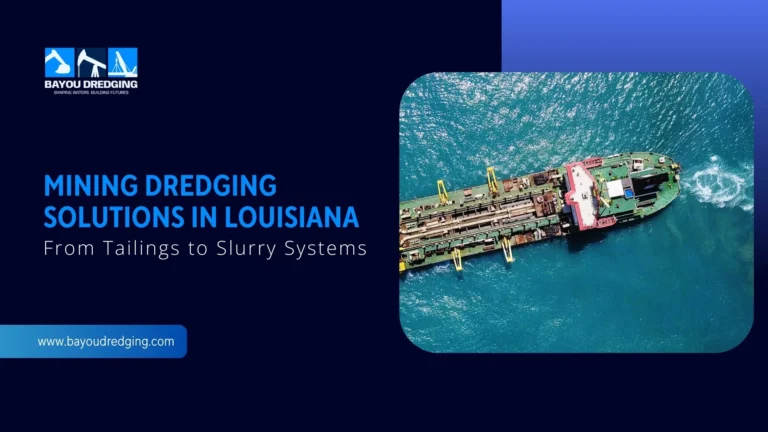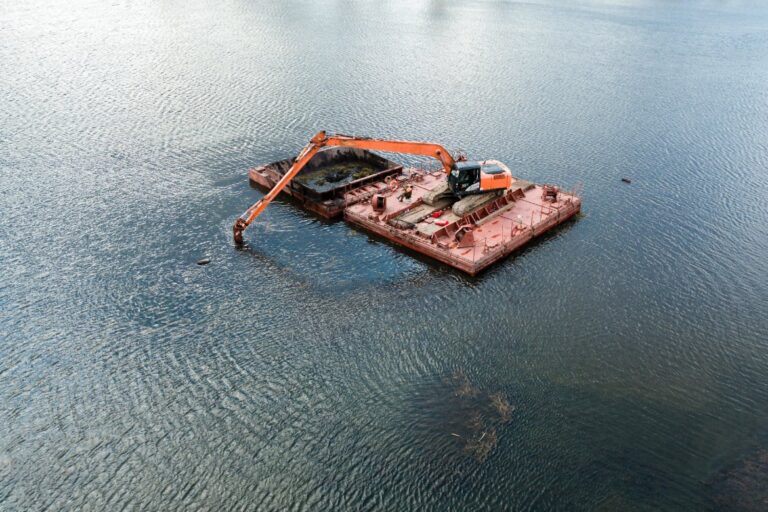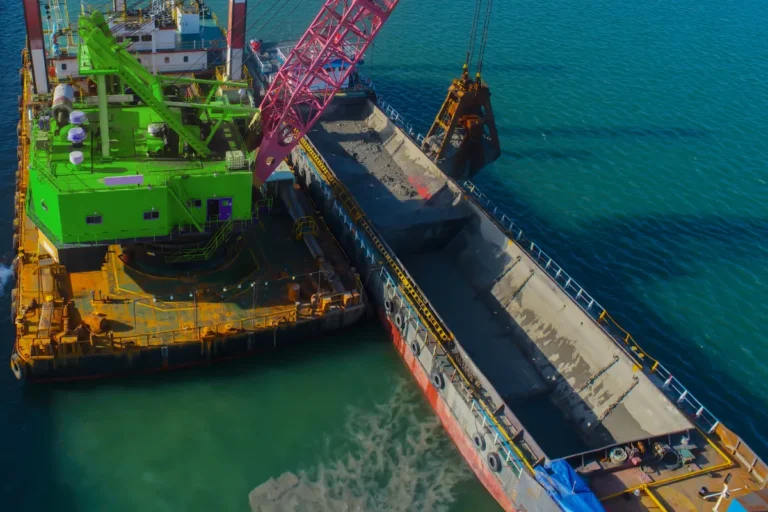For many industries, including mining and marine construction, as well as pond maintenance and coastal restoration, dredge rental has become a practical alternative to outright equipment ownership. Renting provides access to specialized dredges, submersible pumps, and accessories without the heavy capital investment, long-term storage requirements, or ongoing maintenance costs of ownership. This flexibility enables project managers to match equipment to their project scope and duration precisely.
However, the decision of which provider to rent from carries significant weight. Selecting the wrong partner can result in costly downtime, compliance issues, and budget overruns. Conversely, selecting a provider with the right fleet diversity, technical expertise, and support services ensures that projects are completed efficiently, safely, and within budget. Understanding the key factors in evaluating a dredge rental provider is therefore essential for making a sound investment.
Defining Your Project Scope Before Engaging a Provider
Before approaching any provider, it is essential to define the scope of your dredging project clearly. The first step is identifying whether your needs fall under pond dredge rental, dredge pump rental, or a full-scale dredge rental solution. Smaller projects, such as cleaning golf course ponds, retention basins, or HOA lakes, often benefit from compact and modular pond dredges that can be mobilized quickly and operated with minimal setup. In contrast, projects involving heavy slurry, mining pits, or marine construction may require high-capacity dredge pumps or complete dredge systems capable of handling continuous operations.
Technical clarity is equally important. Factors such as the size and type of dredge required, the slurry composition, the target water depth, and the intended disposal method all determine the appropriate equipment. For example, a project handling high-solids slurry may need a hardened dredge pump, while a lightweight, amphibious unit could better serve one in shallow waters.
Establishing these parameters early prevents mismatches between project demands and the equipment provided. It also streamlines communication with potential providers, ensuring they can recommend the most suitable solution, minimize unnecessary costs, and avoid delays caused by equipment limitations.
Evaluating Technical Compatibility and Fleet Variety
The range and flexibility of equipment offered by a dredge rental provider play a critical role in project success. A provider with a limited fleet can restrict your options. In contrast, one with diverse assets—such as cutterhead dredges, submersible pumps, and amphibious systems—can tailor solutions to match the unique conditions of your site. Fleet diversity ensures that, whether the job involves clearing a shallow pond or handling abrasive, high-solids slurry, the right equipment is available.
When assessing technical compatibility, it is important to ask targeted questions:
- Do they offer modular dredges for shallow ponds? Modular units simplify transport and assembly, making them ideal for residential and small-scale projects where access is limited.
- Can they supply specialized dredge pump rental for high-solids applications? Heavy-duty pumps with hardened components are essential for mining or industrial operations where standard pumps may fail prematurely.
Another factor often overlooked is access to supporting accessories. Jetting rings, hose floats, and booster pumps can significantly improve operational efficiency and reliability. A provider with these add-ons readily available can reduce downtime, improve material transport, and adapt the system to changing site conditions.
Selecting a rental partner with a broad fleet and a range of accessory options ensures that your project is not constrained by equipment limitations, ultimately leading to smoother operations and reduced overall costs.
Provider’s Approach to Compliance and Safety Standards
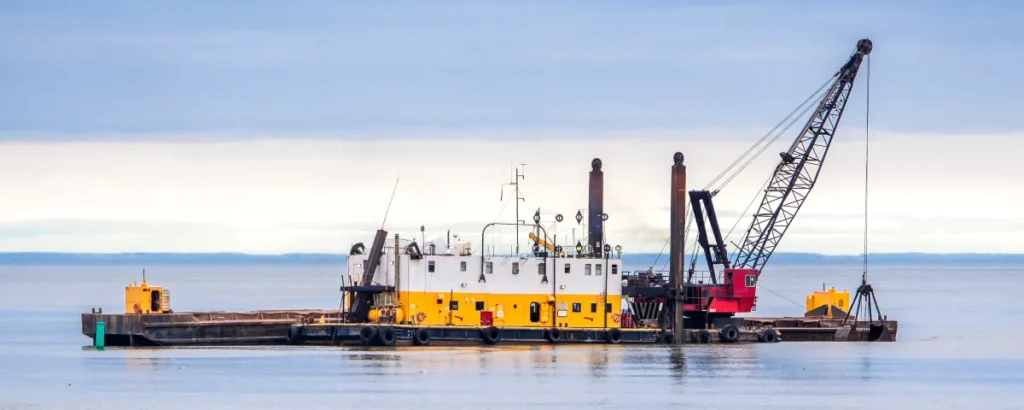
Selecting a dredge rental provider is not just about equipment—it is equally about their ability to meet compliance and safety obligations. A credible provider should demonstrate adherence to recognized certifications and industry standards while offering guidance on local permitting processes. Environmental compliance support is especially important, as dredging activities often intersect with sensitive ecosystems and regulated waterways. Providers who can navigate permitting requirements and supply documentation for noise, emissions, and turbidity control help minimize legal and operational risks.
The regulatory landscape varies widely depending on project type and location. For example, pond dredge rental in residential areas often involves stricter oversight on water quality, noise, and shoreline protection compared to large-scale industrial or marine dredging. While industrial projects may emphasize sediment testing and disposal permits, smaller residential projects typically require additional approvals to ensure minimal impact on surrounding communities and aquatic habitats.
Equally critical are the provider’s safety protocols. Reliable partners should enforce clear standards for confined space entry, spill prevention, and turbidity monitoring throughout the project. They should also provide operator training, safety documentation, and real-time monitoring solutions when required. These measures not only protect workers and the environment but also reduce the likelihood of costly shutdowns due to non-compliance.
By prioritizing providers with strong compliance and safety practices, project managers can ensure operations remain legally sound, environmentally responsible, and safe for all stakeholders.
Rental Terms and Cost Transparency
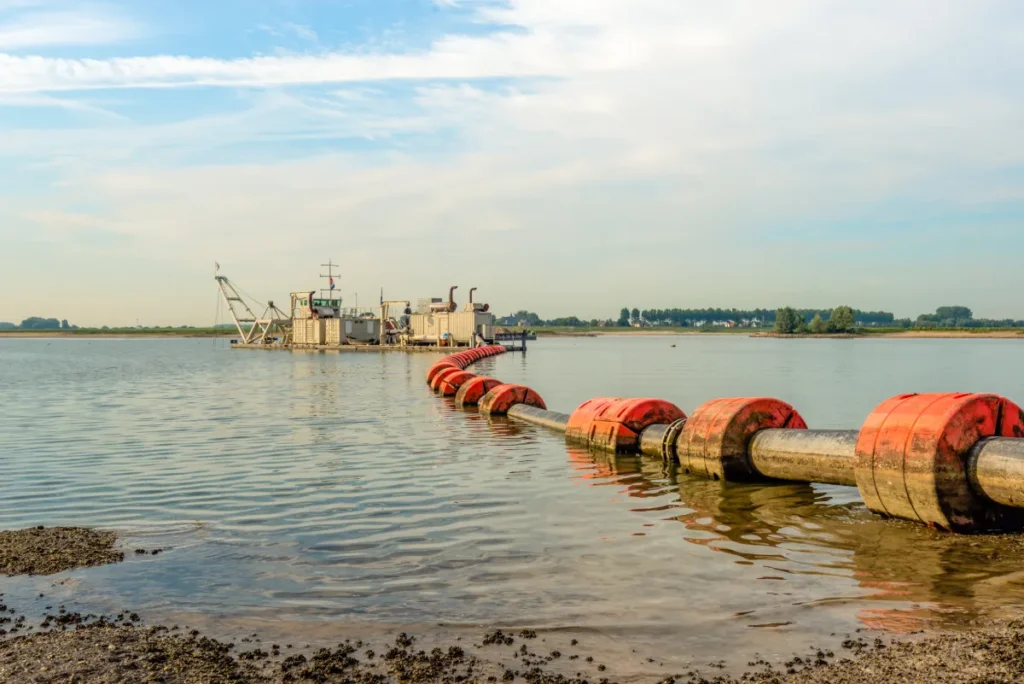
Cost is one of the most scrutinized aspects of any dredge rental agreement, yet it is also where misunderstandings often arise. A reliable provider should offer a transparent breakdown of all costs, including base rental rates, mobilization and demobilization fees, and insurance requirements. Depending on the project duration, equipment may be billed on a daily, weekly, or monthly basis; therefore, understanding these billing structures is essential to forecast expenses accurately.
Hidden costs can significantly affect the overall budget if not addressed early. Common examples include charges for dewatering equipment, transport of oversized dredges, or unexpected maintenance needs. For projects requiring dredge pump rental, costs may also vary based on impeller wear, spare parts, or additional accessories such as hose floats and booster pumps. Requesting a written cost schedule helps eliminate surprises once the project is underway.
Flexibility is another factor to evaluate. Projects often experience delays due to weather, permitting, or unforeseen site conditions, making it valuable to work with a provider that offers adjustable contract terms. Providers who can scale rental duration up or down without excessive penalties give project managers more control over budgets and timelines.
Ultimately, transparent pricing and adaptable terms not only reduce financial risk but also build confidence in the provider’s professionalism and reliability.
Service Support and On-Site Expertise
A key distinction between average and top-tier dredge rental providers lies in the level of service support they deliver. Some providers focus solely on supplying equipment, leaving the customer responsible for setup, operation, and troubleshooting. Others take a more comprehensive approach, offering trained operators, project-specific training, and ongoing technical support. For complex projects, the latter approach significantly reduces downtime and ensures the equipment performs to specification from day one.
Modern dredging projects also benefit from providers who invest in remote diagnostics and real-time monitoring tools. Access to maintenance support and a ready inventory of spare parts is critical, as equipment failures can quickly halt operations and increase costs. With dredge pump rental, especially, wear components like impellers and seals may require replacement during the rental period—having a provider who can supply these parts promptly is a major advantage.
For pond dredge rental customers, service responsiveness is often even more valuable. Smaller projects typically operate on tighter timelines and budgets, with little margin for extended downtime. Providers with quick-response field service teams can address issues on-site, minimizing disruptions and ensuring the project remains on schedule.
Choosing a provider with strong service and on-site expertise ensures that the rental extends beyond equipment delivery—it becomes a reliable partnership that supports efficiency, safety, and long-term project success.
Logistics and Mobilization Capabilities
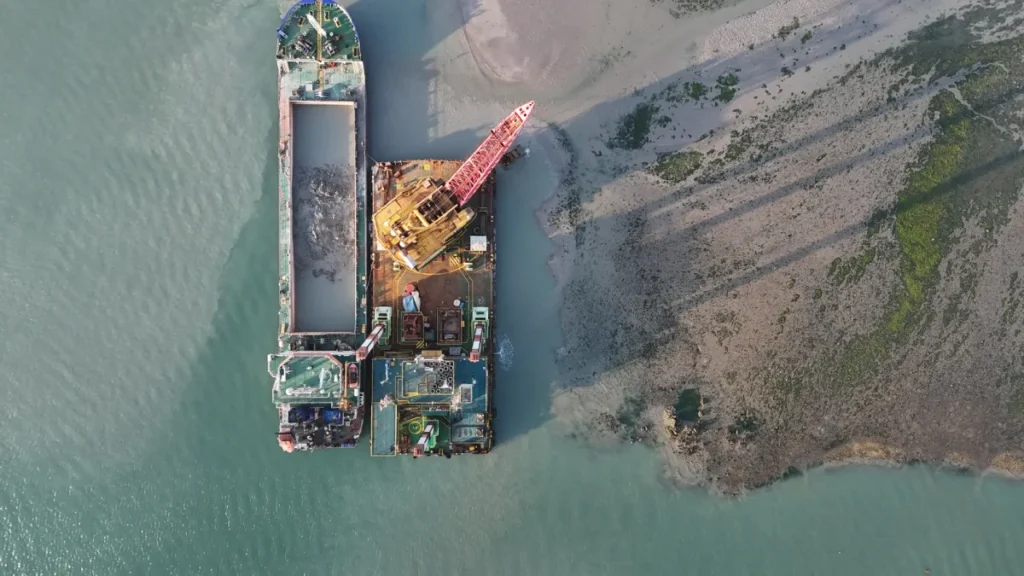
Even the best dredging equipment loses value if it cannot be delivered and deployed efficiently. When evaluating a dredge rental provider, logistics and mobilization capabilities should be a priority. The ability to move equipment quickly to remote, urban, or environmentally sensitive sites can determine whether a project starts on time or suffers costly delays.
Providers with established staging yards, regional depots, and mobilization fleets have a clear advantage. These resources reduce transit time, lower shipping costs, and ensure spare equipment or accessories are readily available if project conditions change. For large-scale projects, this network support is crucial for maintaining uninterrupted operations.
Smaller-scale projects, such as those relying on pond dredge rental, often demand nimble mobilization solutions. Compact, modular dredges that can be transported on standard trailers or disassembled for access to restricted areas enable providers to service ponds, basins, or HOA lakes efficiently. Without this flexibility, projects risk delays due to equipment that is oversized or impractical to deploy in tight environments.
Ultimately, a provider’s ability to mobilize equipment quickly and effectively reflects not only on project timelines but also on overall cost efficiency and client satisfaction.
Long-Term Value and Relationship Potential
While immediate project needs often drive the decision to secure a dredge rental, the long-term relationship with a provider can be just as important. A provider who understands your industry—whether mining, marine construction, or pond management—can anticipate recurring requirements and proactively suggest the right equipment for future projects. This reduces the time spent on scoping and accelerates mobilization when deadlines are tight.
One clear advantage is the ability to bundle services, such as combining a full dredge rental with dredge pump rental and related accessories. Bundling not only simplifies procurement but also ensures equipment compatibility, reducing the risk of downtime from mismatched systems. Providers who offer integrated solutions often streamline logistics, training, and maintenance support, making the overall rental process more efficient and seamless.
Long-term partnerships also yield tangible benefits. Customers who repeatedly work with the same provider often receive priority access to equipment during peak demand, more flexible contract terms, and better pricing structures. Over time, this consistency translates into measurable cost savings and smoother operations across multiple projects.
By evaluating a provider not just as a one-time vendor but as a strategic partner, project managers can unlock greater value, reliability, and efficiency from their dredge rental investments.
Making the Right Choice in Dredge Rental Providers
Choosing the right dredge rental provider requires more than comparing rates—it calls for a complete evaluation of project scope, technical compatibility, compliance standards, transparent cost structures, service support, and mobilization capabilities. By taking a holistic approach, you minimize risks, avoid hidden costs, and ensure that the equipment and expertise align seamlessly with your project requirements. At Bayou Dredging, we understand that every project presents unique challenges, whether it involves large-scale industrial dredging or specialized pond dredge rental. Our team works closely with clients to deliver tailored solutions backed by reliable equipment, responsive service, and long-term partnership value. If you are evaluating options for your next dredging project, let us help you make an informed decision with confidence. Visit Bayou Dredging to see how we can support your dredging needs.
